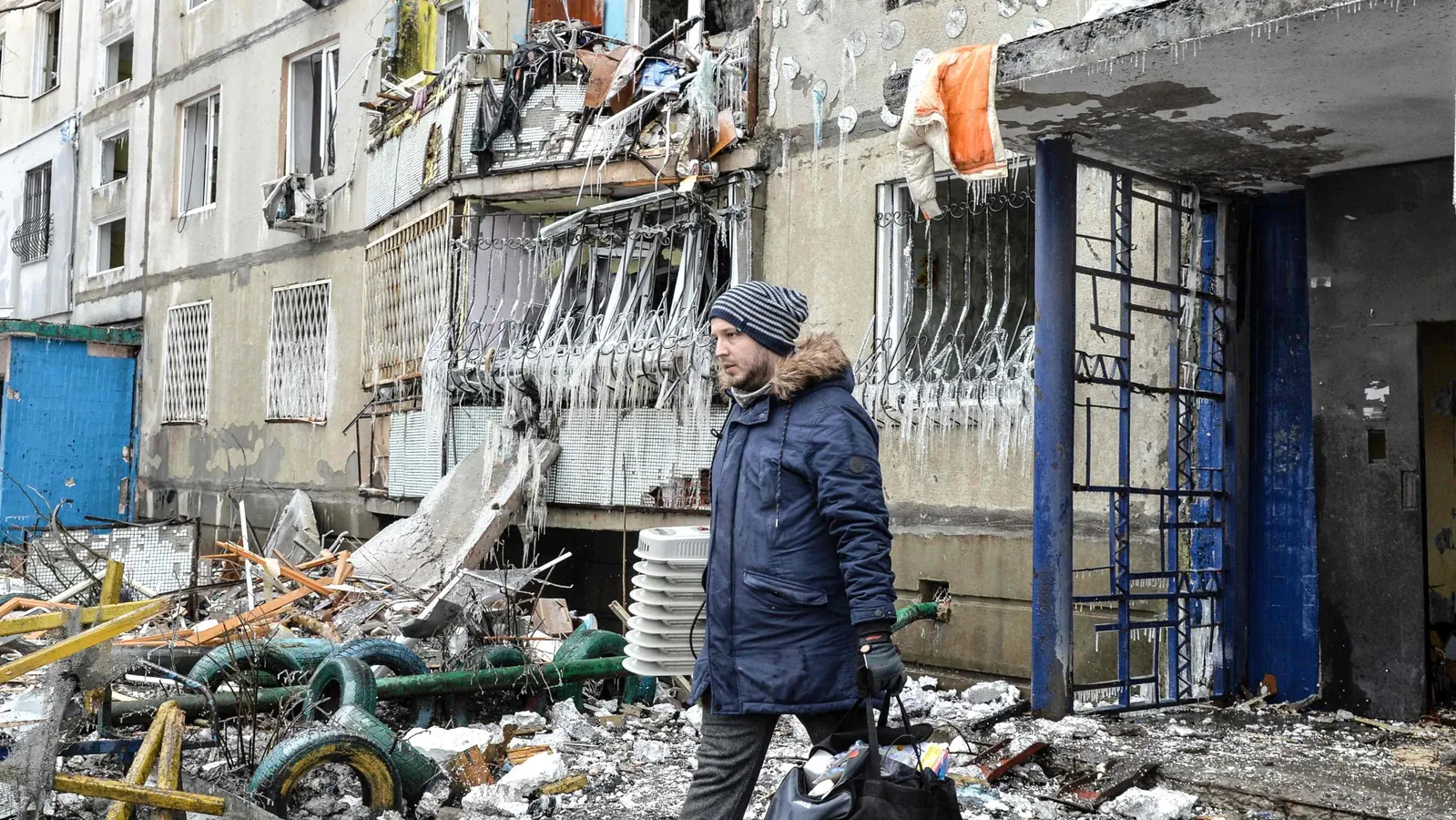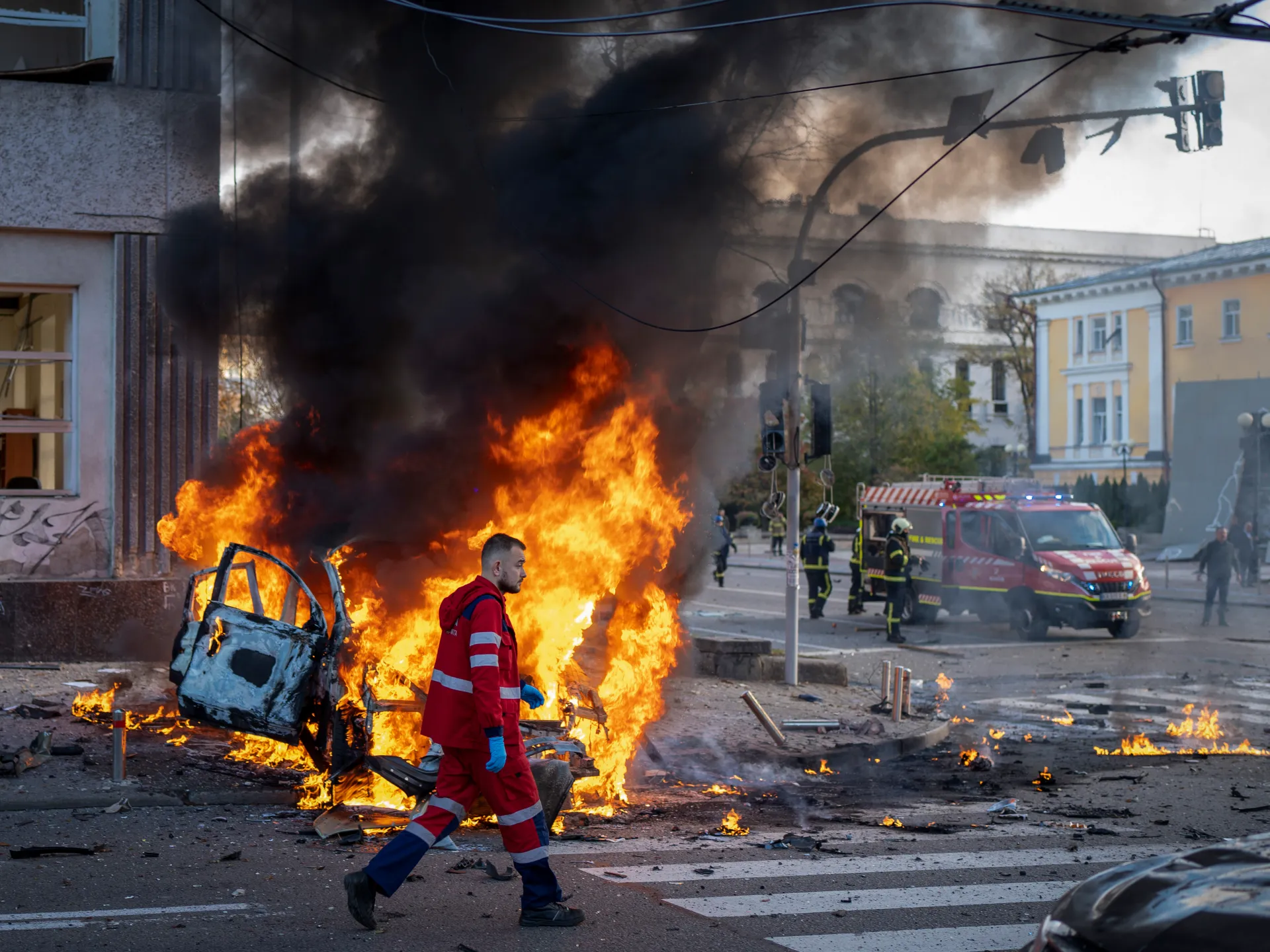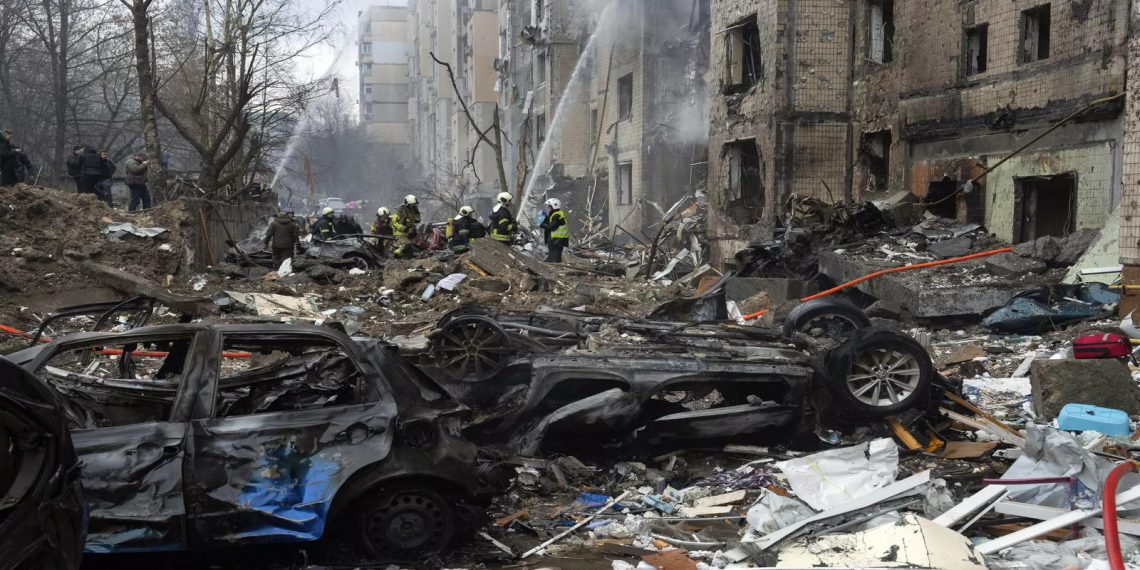In western Russia, a Ukrainian missile strike resulted in the deaths of two individuals, while a drone attack set an oil refinery ablaze on the second day of Russia’s election, which President Vladimir Putin accused Ukraine of attempting to disrupt.
Vyacheslav Gladkov, governor of the Belgorod region, confirmed the casualties, indicating a troubling escalation in cross-border assaults.
Meanwhile, Dmitry Azarov, governor of the Samara region near Ukraine’s border, reported the Syzran refinery’s ignition, highlighting the growing volatility in the region. Although a second refinery narrowly avoided an attack, these incidents add to Ukraine’s recent strikes on Russian refineries, further intensifying tensions.

The situation has cast a pall over the ongoing presidential election, widely expected to secure Putin’s extended tenure in the Kremlin.
At 71, Putin’s dominance in Russian politics remains unchallenged, with none of the other candidates posing a credible threat. Critics lament the absence of genuine opposition, citing the imprisonment or exile of leading dissenters.
The death of prominent opposition figure Alexei Navalny in custody has fueled controversy, with accusations of Kremlin involvement vehemently denied. Navalny’s supporters have labeled the election a sham, questioning its legitimacy amidst ongoing unrest.

Despite the turmoil, Russian authorities aim for a high turnout to demonstrate national unity behind Putin. Early turnout figures suggest mixed participation rates, with some regions showing robust engagement. However, reports of cyberattacks targeting voting infrastructure and sporadic protests hint at underlying tensions.
The election’s integrity remains under scrutiny amid escalating violence and accusations of external interference. As Russia goes through these challenges, the specter of conflict looms large, overshadowing the democratic process.





